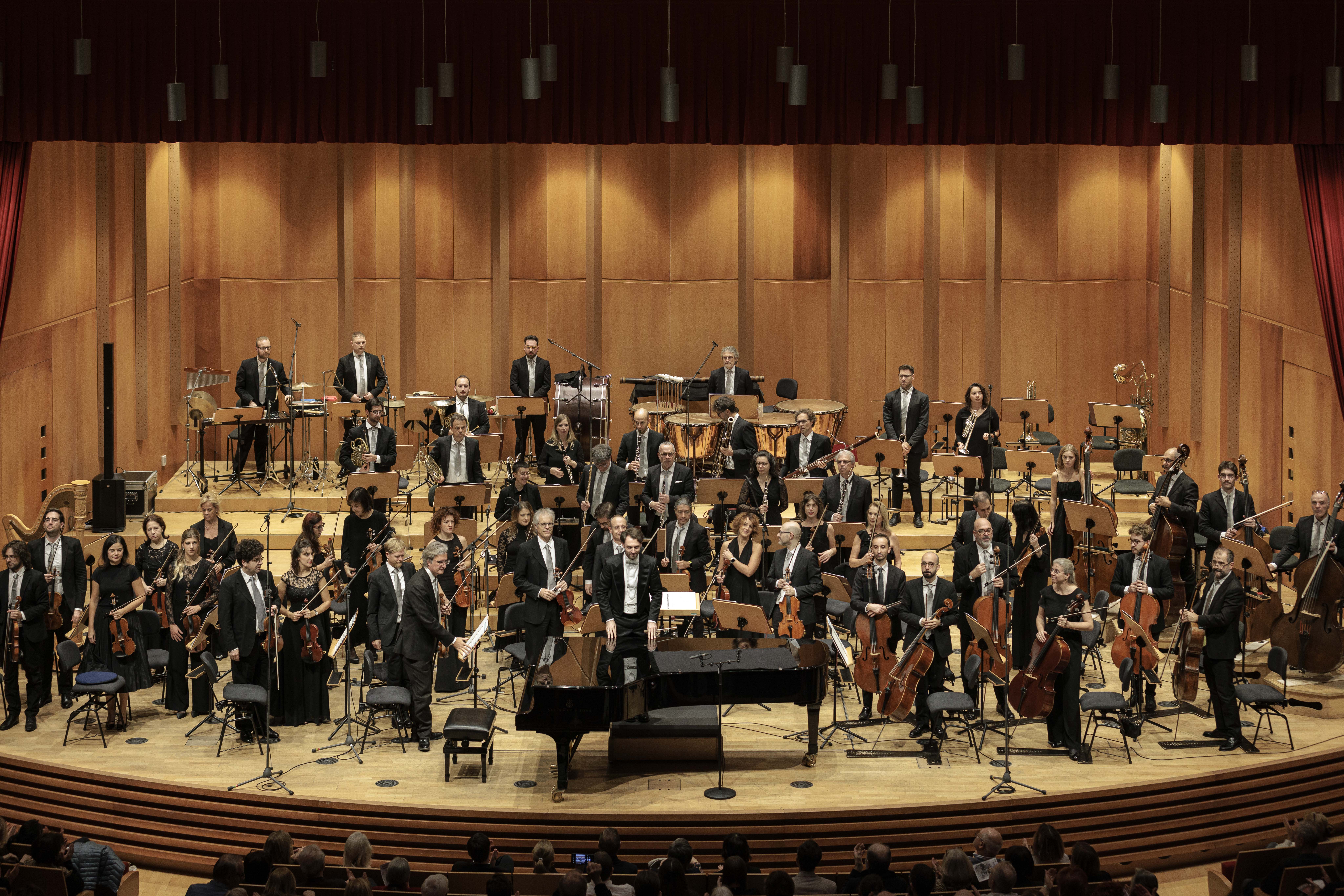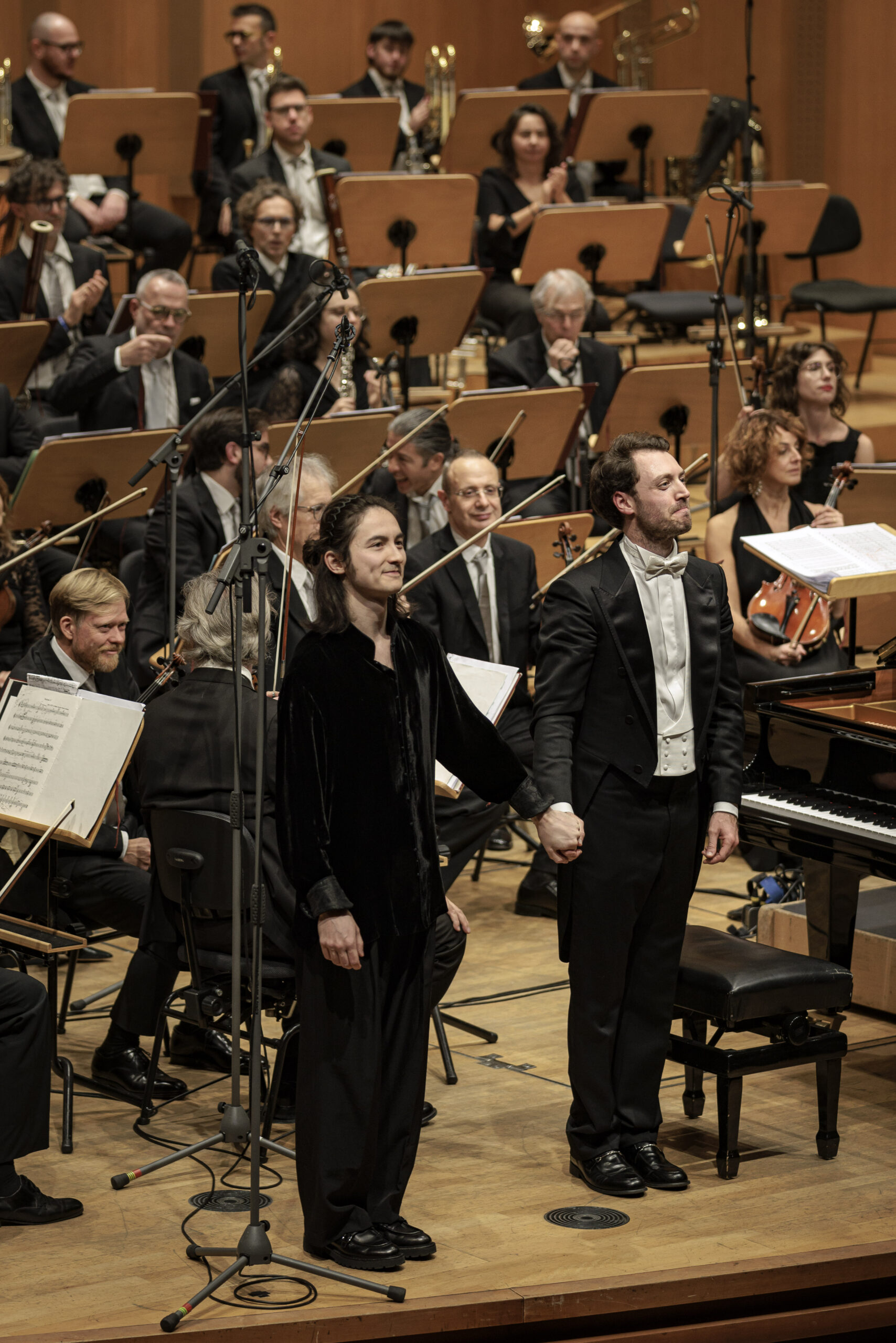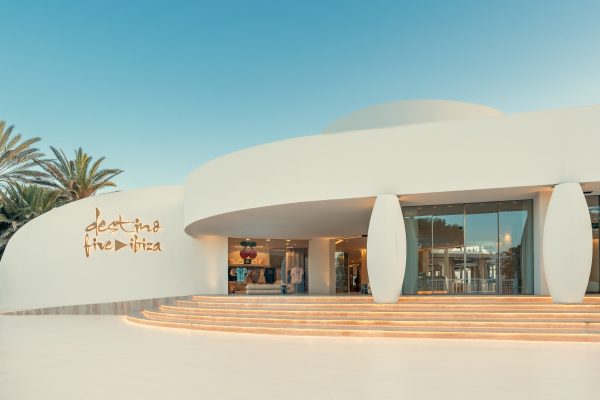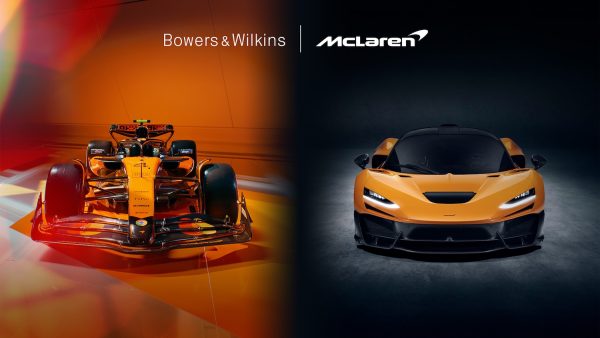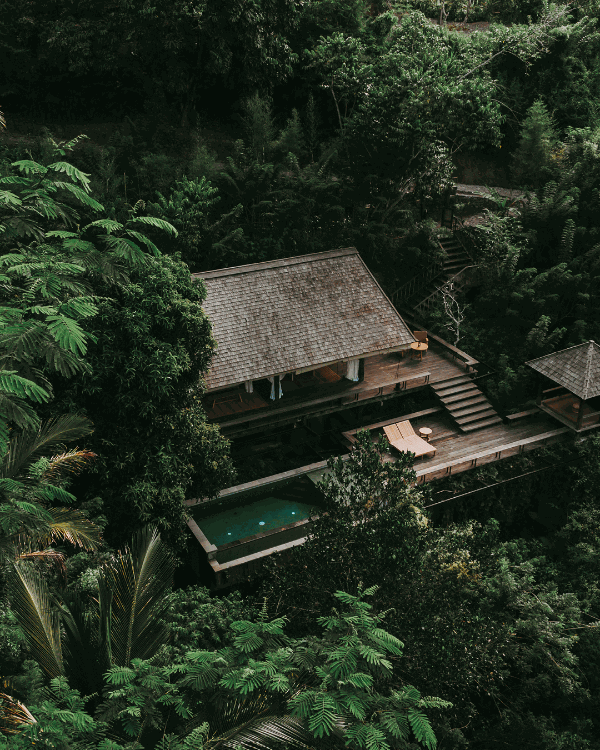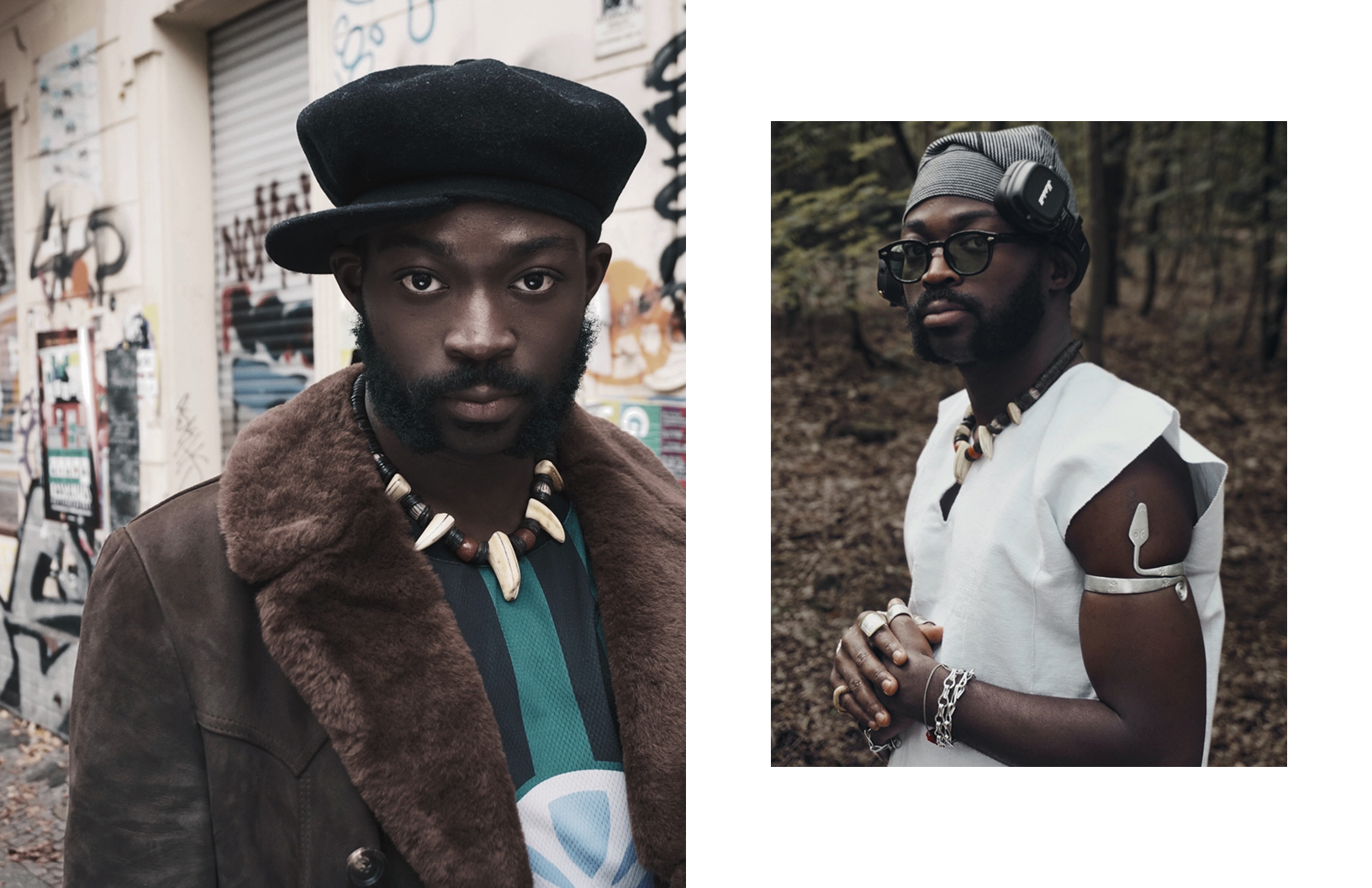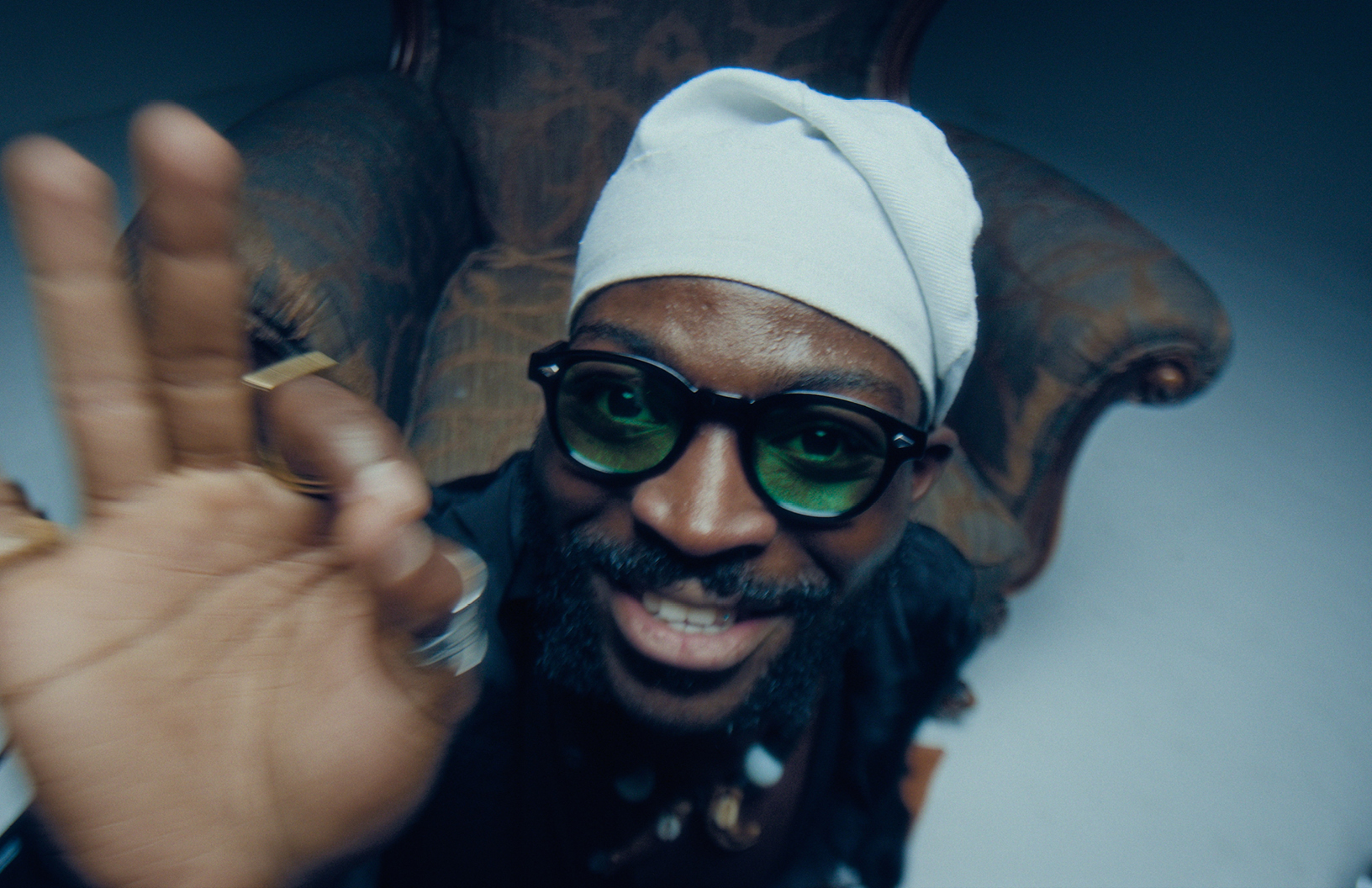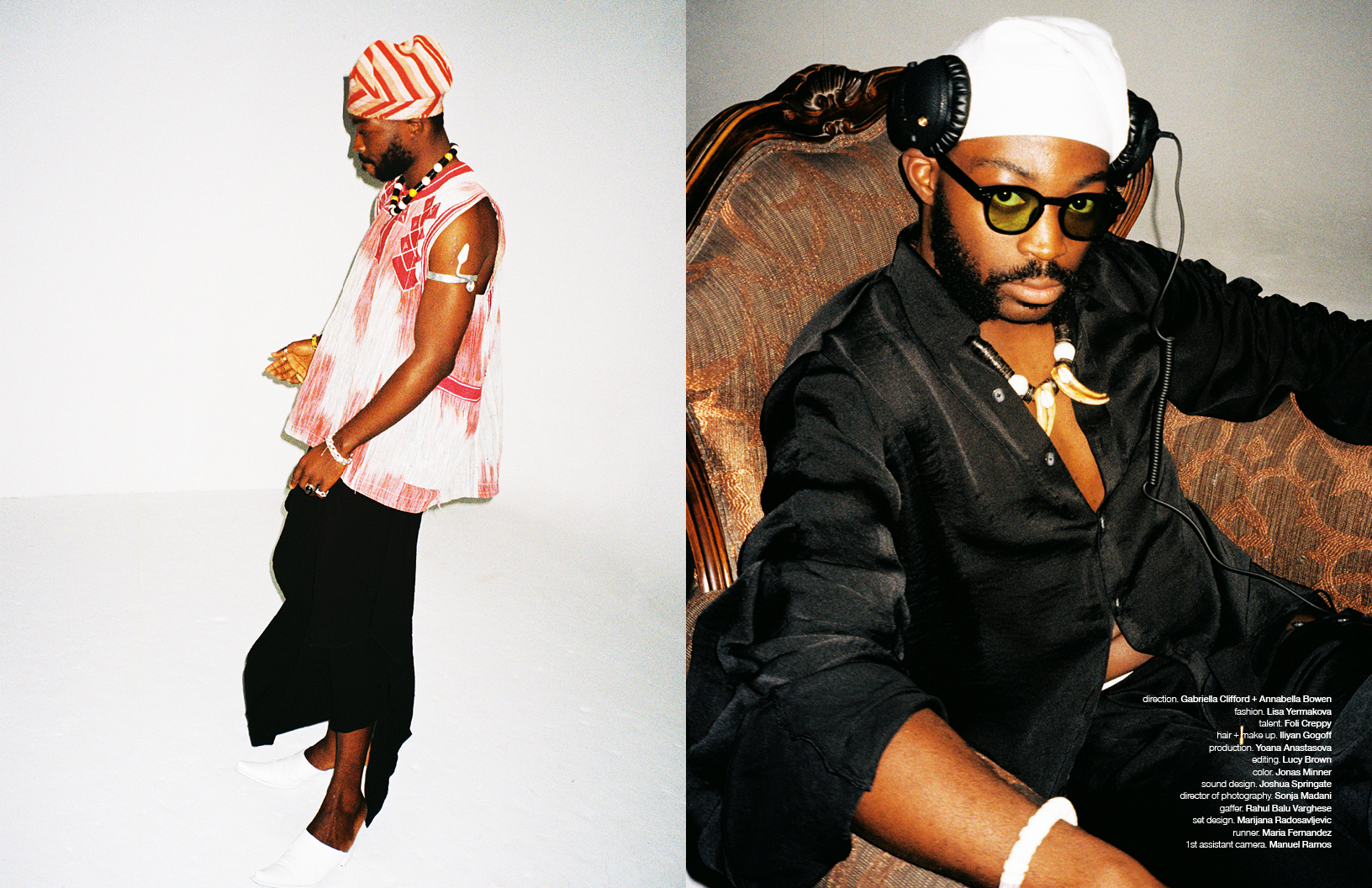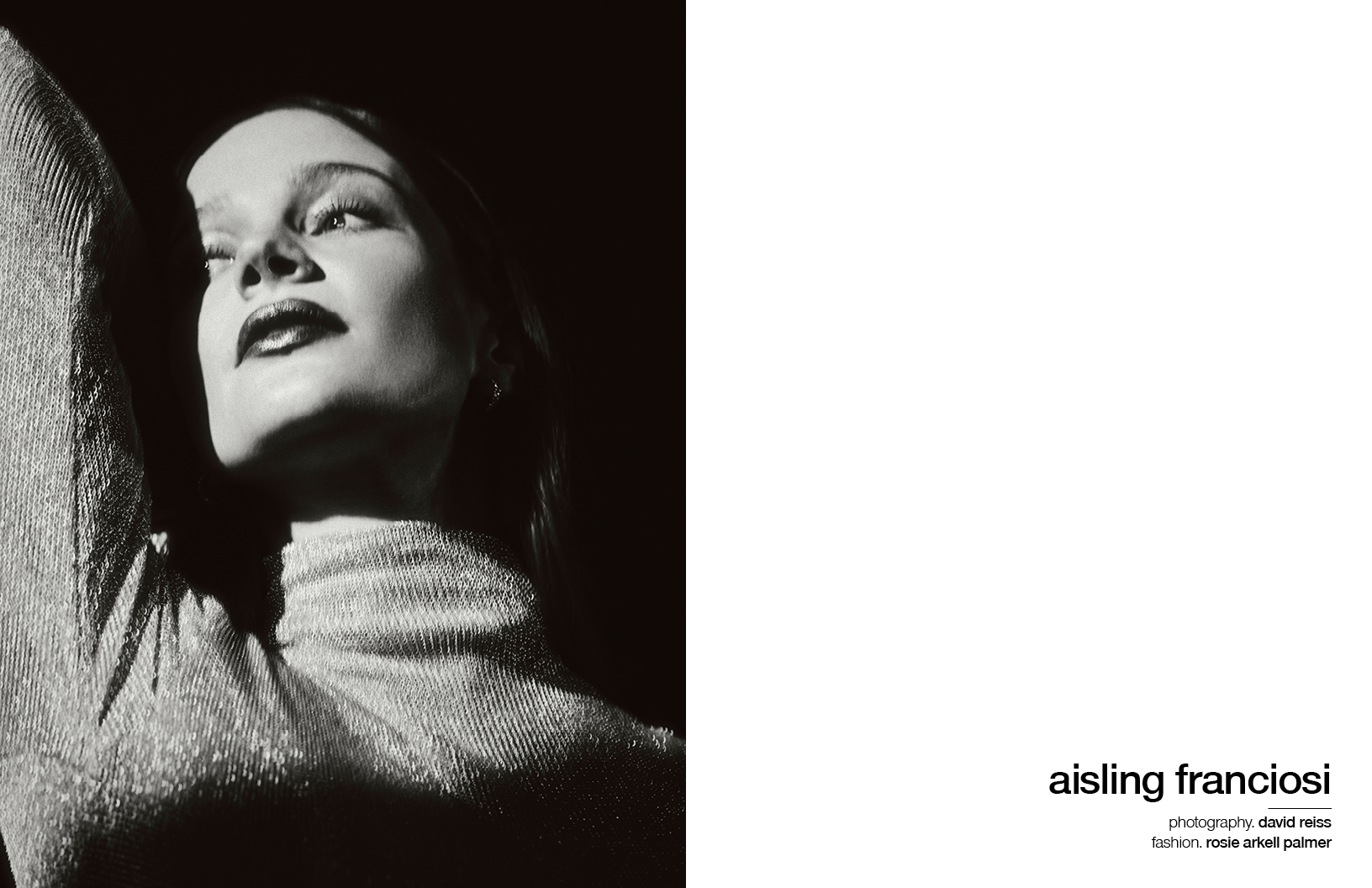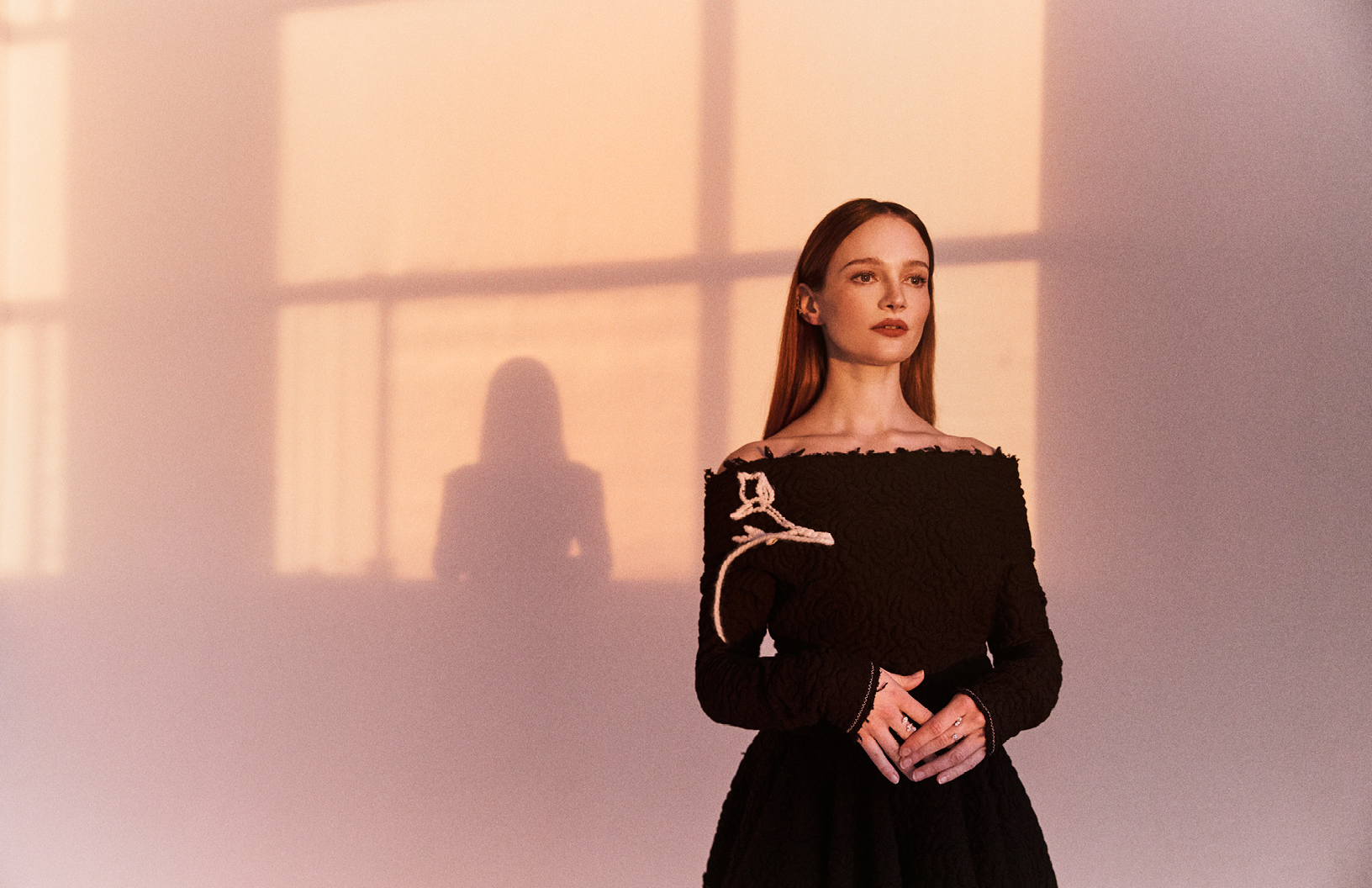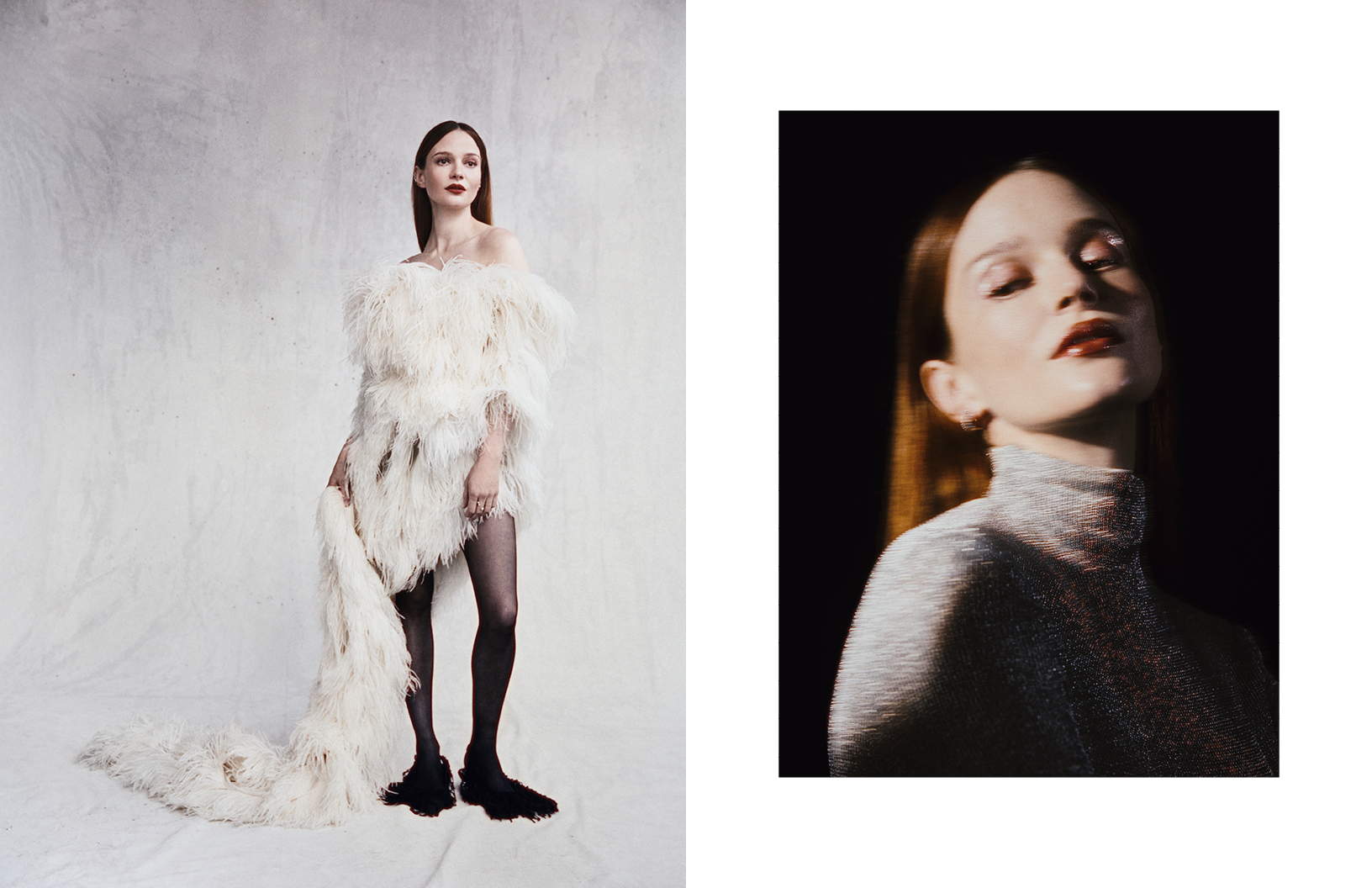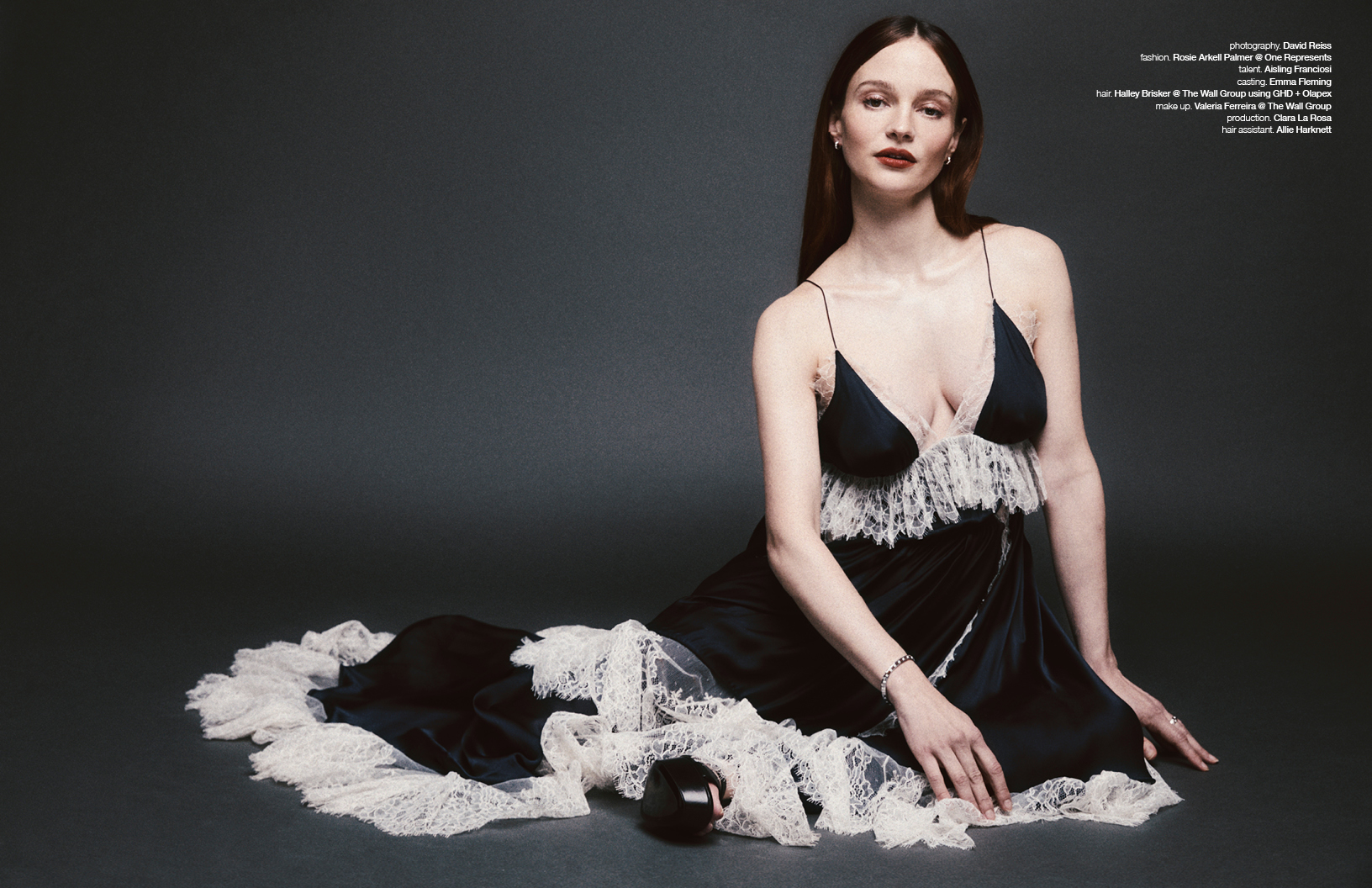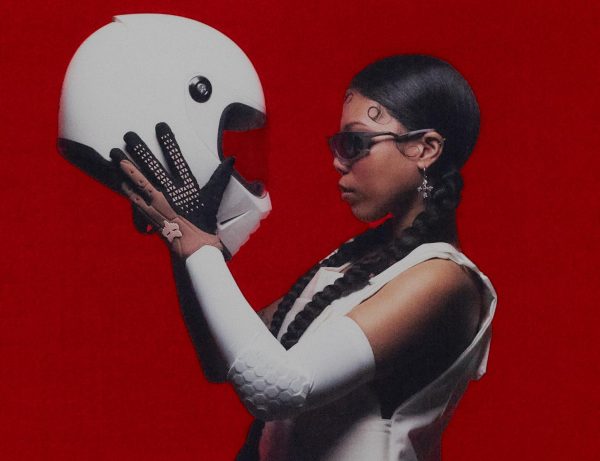
Everybody believes the good old days are behind us, and Meet Me In The Bathroom might just prove that saying right. The documentary, based on the book of the same name, grants viewers an intimate behind-the-scenes glimpse at their favourite bands from the aughts as they were up and coming in New York City. Kimya Dawson and Adam Green of The Moldy Peaches goofing around in their time capsule of an apartment, The Strokes playing around on the subway like it’s a jungle gym, and Karen O sitting on a stoop in Brooklyn announcing the name of her new band, the Yeah Yeah Yeahs.
These days, “Indie Sleaze” is making a comeback. Nostalgia is always profitable, but nostalgia isn’t always the arbiter of what is “good” — it just means you’re sentimental. Meet Me In The Bathroom shows viewers the founding fathers of Indie Sleaze and proves that they were that cool. They were that talented. The music was that good.
In conversation with Schön! the film’s directors Will Lovelace and Dylan Southern discuss how it felt to go through the archive footage, why the movie feels like such a personal glimpse at these bands, and how Brian Chase bought Southern a cannoli.
I watched the film yesterday. I saw it in theatres here a few months ago, back in November, and I loved it so much. I think it’s such a fun movie. It’s really special for me to watch because it’s taking a closer look at all these bands that were so important to me when I was in high school. It’s the music I would listen to and feel like I was super cool and different and edgy and “above Top 40”. I felt that energy that I was feeling as a kid come back as I watched the documentary. It was just so special.
Dylan Southern: Oh, thank you very much.
As I was prepping for this interview I was going through your earlier interviews and learned that this film is entirely made up of archive footage. How did you go about finding it all?
Dylan Southern: In many different ways.
Will Lovelace: Yeah, exactly. It was a challenge and a fun challenge, but it was pretty tricky. We started the film actually and began the archives search just as the world went into lockdown. In a way, the fact we were locked up in our homes and that everyone else was too sort of helped us because we were able to spend a lot of time trawling the old internet message boards, reading every interview that had ever been done with all the characters and contacting the people and the journalists who would have filmed stuff and taken photographs. They were also stuck in their apartments or homes and were willing and able to look through their attics.
Dylan Southern: Look, in a weird way, I feel like that first lockdown had people looking for activities. They were much more open to going up into the attic and digging through DV tapes and photographs. I also think that the whole period made people a bit more reflective and a bit open to looking into the past, so it helped us out. I think if people had been in a 9 to 5 or tired from touring or whatever, we might not have got as much amazing archive. That was one way we found footage.
The other way was a lot of detective work. We’d look at an old photograph and spot somebody with a video camera and then spend a few weeks trying to find out who that person was and where they are now, and if they still have that tape. It was following leads and some of them were dead ends. But sometimes you’d find an amazing whole archive that no one had seen because it had been in a lock-up for 20 years. We’ve never made a film this way before. Our other music docs are more “typical” types of music docs, so it was a new experience for us. But it was great, it was so much fun… Except for when it wasn’t.

Did you guys ever come across anything in these tapes? Things that made you go, “Whoa! I can’t believe we just found this!”
Will Lovelace: Yeah, that happened quite a few times. Sometimes it was really small moments that just weren’t necessarily the headline moments, but were just an amazing kind of moment between characters. The early Strokes footage on the subway was taken well before they were signed… We were desperately trying to find footage that was like that. So when we got that, that was a special moment and it was funny, sort of. One of us on the team would be downloading this footage and you’d be getting messages from one another saying, “Oh my God, you’ve got to see this footage.” And so that Strokes one was that was a kind of big moment.
That was found footage. But then on the other end of the scale – getting the rushes to order the footage for the Maps video that allowed us to play that out in one single take of Karen’s performance was another magic moment. That footage allowed us to tell that part of the story interestingly.
Dylan Southern: Other stuff might seem a bit more “nuts and bolts,” but a lot of journalists from the time were incredibly generous. They still had tapes of interviews to hand over to us. In the approach to the film, one of the key things we wanted was for the doc to feel too retrospective where possible. We wanted to hear the voices from the time and presented them in a way that was immediate and immersive and would hopefully make people feel like they were there. There were so many moments when something would come in and that just allowed us to go in the direction that we hoped we’d be able to go in, or sometimes something would come in and we were like, “Well, we didn’t know we were going to get this,” and now it’s an important part of the film.
The documentary is devoid of talking head-style interviews. Instead, old interviews are mixed with interviews you conducted. I know how difficult it can be to set people in a scene as an interviewer. How did you guys go about setting the stage for subjects to feel like they could talk about that period so freshly and not have it feel retrospective?
Dylan Southern: Any contemporary interviews we did, we saved until the end of the process. I think in a film like this, a lot of the people — the subjects — and the book that this film is based on, were still fresh in their minds. Towards the beginning of the project, people were saying that they’d already told the story, why do we need to tell it again? The great thing about making a film like this is that whole, “if you build it they will come.” Once the momentum got going and people were getting involved, more followed. We did all of the contemporary interviews as late as possible so people could see some of the stuff that we were talking about and get excited about it. A significant portion of the film is all from that period. We only went to those contemporary interviews where we needed to clarify something or link something or give context or just kind of craft the film a bit towards the end. There were a lot of diplomacies involved and a lot of like showing them that we’re making a film that they would appreciate being part of. Something that was put together with love rather than just thrown together.

This film takes all of these monumental figures of rock history, people that I know you guys had an experience discovering yourselves. You already had a relationship with James Murphy before, but what was it like talking to these figures? Was it a little bit of like, “Don’t meet your heroes,” ever? Or was it always just really exciting and fun?
Will Lovelace: The first person we spoke to was Daniel Kessler from Interpol. It wasn’t a recorded conversation, it was just a conversation telling him about the film we were trying to make. He was so generous with his time and so happy to talk to us about that time and to point us in the right direction to where an archive might be. As I said, there’s some diplomacy needed, but mostly talking to the guys was great. Whether that was an interview or more mundane questions about whether you can find an archive.
Dylan Southern: I was just pleasantly surprised at how nice everyone was because, you know, I did a whistle-stop tour of points in New York and then LA to meet the Yeah Yeah Yeahs, and I met Brian Chase, the drummer first in New York, and he met me at his favourite bakery and bought me a cannoli. I was just like, this is insane. [Laughs]
Everyone just wanted to find out if we were coming at it from the right place because there was a little bit of kickback after the book, especially with The Strokes. It opened up some Twitter spats and that kind of thing. We weren’t remaking the book for the screen. If anything, we were making a film inspired by the book, or that could be a companion piece to the book. That time just fascinated us, you know, the fact that this is a moment in time just before the world’s about to change in so many different ways technologically, culturally, politically, yet you have this kind of little moment just before a lot happens. And I think when the bands heard that that was our take on it they were onboard.
We all know the phrase, “cut your darlings,” which means you have to cut out some of your favourite bits if it doesn’t fit. Were there any pieces the artistic side of you wished you could have kept in the film, but you had to cut out just because of length or something else?
Dylan Southern: Obviously there are a lot more bands in the scene. I love Liars. I would have liked to have told more of their story and given more screen time to them. There was so much great archive content, performance-wise, that would have been great to be in there. But at the end of the day, we didn’t want to outstay our welcome in the film. It had to be a tight hundred minutes. So, there was a lot of stuff that we had to kill or trim or get rid of. I think we had a four-and-a-half-hour film at one point, which would have bored the pants off everybody. That process of getting it down meant that we had to kill our darlings.
On the other hand entirely, do you have a favourite moment in the film?
Will Lovelace: That’s like saying, “Who’s your favourite child?” [Laughs]
Dylan Southern: Carlos from Interpol makes me laugh a lot just because he’s slightly ridiculous.

I know. I didn’t realize how ridiculous he was. His harnesses for instance? [Quotes and imitates Carlos’ clip from the movie] “I don’t think anyone’s ever done this before.” Ok, dude, you’re revolutionary. [All laugh]
Dylan Southern: Well, it was cool at the time…
And now it’s on the red carpet! But I thought it was cool to see that. For me, a lot of the musicians that I follow, I have zero relation to them outside of their music. I don’t read a ton of their interviews or watch a lot of music videos, so I genuinely don’t know what a lot of my favourite musicians look like or sound like outside of their music. And so I thought that this was a cool and unique insight into that period and these artists. It was also such a warm, friendly look at something that felt so close and personal. It managed to remain feeling authentic to the end.
Dylan Southern: I think there’s a reason for that as well. Now everyone’s so used to being filmed and they’re aware of how they look on camera, of the fact that they’re being filmed. There’s an innocence to the footage from back then because it’d be very rare for someone to have a little camcorder or be taking photos on a night out. It feels like you have a privileged view of them rather than everything being staged to the camera. I feel like when we saw some of the archives, it just captured a time that’s gone now. These days people perform their nights out for the camera. Whereas I feel like those images of The Strokes hanging out are not for the camera. That’s actually who they are.
Will Lovelace: I think you’re right on that. I think even when somebody has a camera – stills, camera or video camera – no one was thinking this is going to be seen by people other than the person filming it. And that is completely different now. Everything is so different now. Even today, we’re doing this interview over Zoom rather than on a phone.
Dylan Southern: Will and I haven’t worried about our appearances though [laughs].
Will Lovelace: [Laughs] Exactly, we’re imagining that no one can see us.
How has your relationship with the music from this era changed or not changed post-production of this film?
Will Lovelace: I think immediately you don’t want to ever listen to the music again. Now we’re attending screenings of the film and it’s nice to hear the music again. I think you’re reminded of how great some of these albums were and are in total.
So have you guys been listening to the new music that has dropped recently from The Strokes and LCD Soundsystem? Interpol released a record this year. Have you been listening? Do you feel like they’re living up to the standard they set for themselves all those years ago?
Dylan Southern: Yeah, I think so. I mean, they’ve all evolved. It’d be difficult to come out with something as perfectly formed as the Strokes’ first album. But I think it is great. It feels like there’s less ageism in music now because the 20 years ago bands are going. It feels like it weirdly is less of a thing. I think it’s great that they’re all still pushing the boundaries and creating new music. I mean, I haven’t listened to the new Interpol record, but I need to.

It’s really good. No Carlos D anymore, though. He’s gone his weird way. [All laugh]. What do you hope audiences take away from the film?
Dylan Southern: For me one of the things I liked about where we ended up with the film is that it celebrates that moment when you’re young, where anything’s possible, but it also kind of deals with how ephemeral that is and how quickly it can pass without you realizing that. I love the thing that Albert says towards the end, which is like, “You have this thing, you don’t realize you’ve got it. And then you lose that thing and then you spend years chasing after it, trying to get it again.” When the book was reviewed in England, The Guardian described it as a “flashbulb” moment before everything changed. I think I want audiences, if they lived through it, to be taken back to that time, but maybe also to learn something new. And if they didn’t live through that time, I’m interested to see what younger people think of it and whether it’s inspiring. I hope people walk away and appreciate the connections that we make in our lives and the way that they can lead to the kind of things that are bigger than themselves.
Meet Me In The Bathroom hits UK cinemas on March 10.
interview. Kendall Saretsky


Schön! Magazine is now available in print at Amazon,
as ebook download + on any mobile device






























































